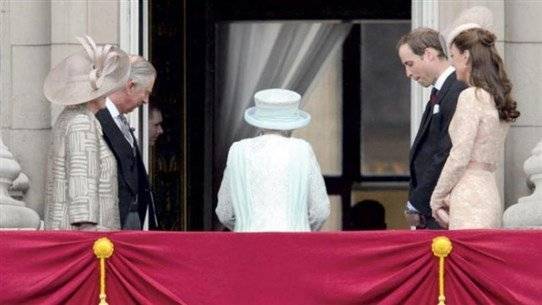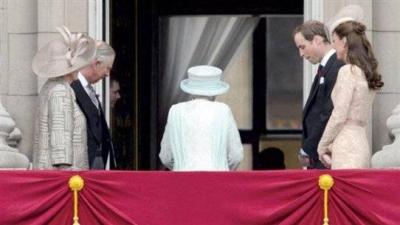As history goes to history, Queen Elizabeth II, the most famous queen in the world, who reigned in the United Kingdom for a record 70 years, passed away at the age of 96 at her palace in Balmoral, Scotland. Her death opened the door to a new era in the country's history, as her eldest son Charles (73 years old) automatically succeeded her, in accordance with a centuries-old protocol.
As soon as Buckingham Palace in London announced that the queen had "died peacefully" in the afternoon, crowds gathered outside the palace burst into tears, while a deep silence fell over the place. The British flag was lowered over the palace, and a sign was posted stating that the changing of the guard would not take place. A large number of people came to the palace in the evening, while condolences and praises for the late queen's legacy poured in from all over the world.
The country will enter a period of mourning for ten days, during which flags will be flown at half-mast on all buildings, parliamentary sessions will be suspended, but ministries will remain operational to manage affairs. The funeral is scheduled to take place on September 18, this year, and her body will lie in state in Westminster Abbey to allow those who wish to bid farewell, before being interred in Windsor Castle next to her husband Prince Philip, who passed away last year.
The new monarch Charles mourned his "beloved queen and dear mother," while the newly appointed Prime Minister Liz Truss stated that the late queen was "a source of love and admiration" around the world, addressing the new king as "Your Majesty Charles III" while offering her condolences to the royal family. It was later officially announced that the new king has taken the name "Charles III," and he will deliver a speech to the nation today.
The late queen had been experiencing mobility and standing issues since last year and had resorted to using a walking stick on different occasions. Her health had deteriorated for about a year, following a one-night hospital stay. Since then, her public appearances had become increasingly rare, attributed by the palace to her occasional difficulties in standing and walking, which forced her to delegate an increasing amount of her duties to her direct heirs; her son Prince Charles and her eldest grandson Prince William.
Anticipation and sympathy dominated Britain yesterday morning after the queen's doctors expressed their "concerns" over her health status, prompting family members to gather around her at Balmoral. Charles and his wife Camilla arrived at Balmoral, where the queen spends the end of summer each year, as well as her daughter Princess Anne. Prince William also arrived at the palace, along with several other family members. Later, Prince Harry, brother of Prince William, who lives with his wife Meghan Markle in California, arrived as well.
Throughout her seven decades on the throne, Queen Elizabeth performed her duties with unwavering sense of responsibility, successfully retaining immense support from her subjects despite all the crises and challenging moments. Tens of thousands came to see her on her balcony and greet her during the celebration of her seventieth jubilee last June.
Immediately following the announcement of her death, messages of condolences and tributes to the late queen came from around the world. U.S. President Joe Biden stated that Queen Elizabeth II was "a woman of state with unparalleled dignity and steadiness." European Council President Charles Michel considered that Queen Elizabeth embodied "the importance of enduring values."
In New York, the United Nations General Assembly and members of the Security Council observed a minute of silence in mourning. The President of the General Assembly, Abdulla Shahid, expressed his condolences to the British people, speaking of "a moment of deep sorrow for the royal family, the British people, and the international community."




